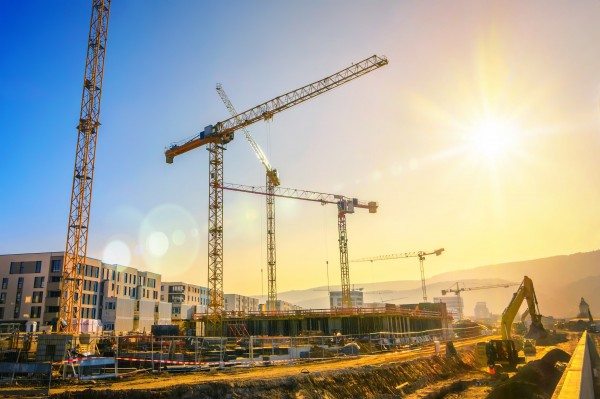
COVID-19 Effects on the Construction Industry
Construction projects are dependent on the flow of materials, equipment, and labor along supply chains. A disruption at any level has the potential effect of delaying delivery and increasing costs. The COVID-19 outbreak and the subsequent measures taken to contain it have had a profound impact on every industry including construction. As lockdowns all over the world are entering a phase of easing and economic activity is resumed, contractors are facing the challenge of financing increased costs and the uncertainty of whether those are covered by contract clauses and can be recovered.
All over the world, construction projects came to a halt, have not started, or accumulated important slowdowns and delays. With little to no guidance relating to pandemics, parties are contrasting contract clauses against regional and national common laws. Most standard contract forms like versions of FIDIC have an explicit force majeure clause (1999 edition), or at least an equivalent “exceptional event” clause (2017 edition). However, situations occur where contracts either do not mention force majeure at all or mention it without discussing epidemics and pandemics. Even so, most standardized contracts do allow for excusable delays that could be applied successfully to the COVID-19 case.
There is almost a consensus that given the scale and speed of the COVID-19 crisis, where it is possible, it meets all criteria to qualify as a force majeure event. However, in some jurisdictions, the current definition is likely to be too narrow to incorporate all contract issues. For example, in the UAE for an event to qualify as force majeure it must be unforeseeable, its effects must be incapable of prevention, and it must render performance absolutely impossible. The last condition contradicts the reality of many construction projects where performance has now become rather burdensome and costly, but not impossible.
Inconsistency of entitlement can also arise where different contracts in a chain have different overarching governing laws. This can lead to uneven relief rights. The situation is to be expected on important international projects involving companies from different countries and multiple levels of subcontracting. The force majeure clause is often put against the “change in law” provision many contracts have. Because they would otherwise be granted only a time extension, contractors are asking whether the change in laws many countries enacted to facilitate the lockdown can entitle them to compensations. Stay-at-home orders had an obvious temporary nature, but they were powerful enough to disrupt economic activity. While contracts entered in 2019 qualify for invoking force majeure (where it is applicable), the situation is less obvious for contracts started in 2020. What was the date by which the COVID-19 escalation on a global level was “reasonably foreseeable?” In between January 30th when the WHO declared COVID-19 an international public health emergency and March 11th when it was pronounced the global pandemic, the risk has evolved from marginal to apparent. Contractors signing projects in this interval could find it difficult to provide a valid argument to invoke for delays.
In the absence of clear guidelines, it is of vital importance for parties to carefully check the terms of their contracts as well as any relevant laws that might define or relate to force majeure. Contractors most likely have a timeframe for notifying the estimated delays and applying for time extensions, which should be met. As it is clear that the COVID-19 situation will have an impact on everyone, parties should strive to communicate with each other and target an amicable solution.
All parties have the legal duty to formulate a plan to mitigate the impact COVID-19 has on the project. For example, despite government shutdowns, contractors and suppliers can identify and perform scopes of work under the contract that do not interfere with social distancing or other lockdown measures. Both the client and the contractor should monitor updates to legislation and prepare appropriate reactions. Although unpleasant, it is highly likely the pandemic will lead to the termination of numerous contracts, especially in situations where the COVID-19 crisis over imposed itself on already existing conflicts and disputes. Some standardized forms of construction contracts include a clause of “Termination and Suspension of Work” that gives the contractor the right to terminate the contract if work is forcefully stopped for 30 consecutive days.
MMA Law










































Leave a Comment